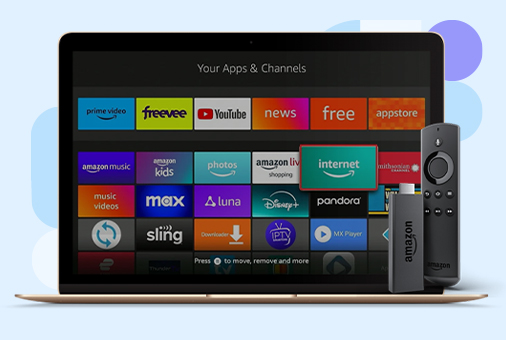
How Does Data Security Enhance Healthcare Efficiency
While the healthcare landscape changes dynamically, data security is at the center of force, shaping efficiency and patient interaction. Where technology has become integral to patient care, safeguarding sensitive information is no longer an obligation but a strategic competitive advantage.
Trust forms rapport, which is essential for successful health practices where patients readily share information. Healthcare providers can also improve revenue cycle management through integrated, secured data management systems.
This blog post explains how data security heightens productivity in health and details further why it is needed to ensure quality care and patient confidence.
Protecting Patient Information Enhances Trust
The more confident patients are that their personal and medical information is secured, the more open they will be with the health professional. This will translate into a better diagnosis and treatment since health providers can access complete and accurate information.
With higher levels of trust comes lesser patient turnover, saving time and money. Health organizations taking data security more seriously tend to be considered more reliable, attracting more patients. Security-oriented platforms, such as iProVPN, demonstrate that having a proper data protection environment can pay off in the healthcare industry while mirrored interests share a preoccupation with trust.
Facilitating Compliance with Regulatory Requirements
The security and privacy of patients are ensured through strict regulatory standards such as HIPAA, which every healthcare organization needs to observe. The ability to comply efficiently can be a deciding factor in avoiding penalties and subsequent legal complications that might disrupt the operations.
A correctly implemented data security system will automate processes of compliance in such a manner as to make the meeting of the healthcare organization’s legal requirements easier.
Data security solutions save time and resources for medical providers by reducing the administrative burden related to compliance.
Instead of manually monitoring each and every particular aspect of data protection, the secure system itself can flag potential compliance issues that enable the organization to take quick action before they become serious problems.
Improving Revenue Cycle Management
Revenue cycle management encompasses those financial processes related to billing, payments, and patient insurance claim processing. Secure patient data is paramount in this process, as most of the billing and submission of claims require compassionate health and personal information.
When investing in revenue cycle management software, find those that sync well with the other systems. Integrating secure systems into the RCM workflow assures health organizations of lessening errors, ensuring accuracy, and speeding up payments.
Safety in handling patient information reduces the risk of making expensive mistakes or fraud that delays the collection of revenues. Improved data security in RCM enables healthcare providers to submit claims more rapidly, improving cash flow to help keep an organization financially sound. It also enhances your transparency through progressive communication with the financials.
Enhancing Telemedicine and Remote Care
The growth of telemedicine and remote patient monitoring software development has grown significantly, especially in the face of global challenges, including the COVID-19 pandemic.
Secure data transfer forms the backbone of success on a telemedicine platform, wherein sensitive patient information is transferred between health professionals and patients through online systems. Data security ensures such interactions are private and protected while enabling healthcare providers to expand their services outside the traditional office visit.
With the ability of safe data systems, there is an opportunity for healthcare providers to conduct remote consultations and treatments. This has been termed a way of ensuring that patients who cannot access the healthcare facility get access to care.
It improves patient satisfaction and reduces the pressure on available healthcare resources in person, improving efficiency across the board since such consultation will limit the pressure on other health services.
When discussing how technology plays an integral role in patient care, it’s essential to consider a deep dive into Bluetooth tech. Bluetooth technology has become increasingly significant, allowing seamless data transfer and device connectivity to support modern healthcare solutions.
Reducing the Risk of Cyber Attacks
Health organizations deal in information that a hacker would most wish to lay hands on. For this reason, they are very potential victims of cyber attacks. Such a breach will accompany devastating financial losses, reputational damage, and compromised patient care.
A health organization will go miles to ensure that the problems of cyber attacks are put at minimal risk by investing in advanced data security measures that protect operations and patient information.
Encryption, multi-factor authentication, and intrusion detection systems could block such cyber-attacks even before they occur. Health organizations can be more effective because they will be satisfied that their systems are safe from threats of breaches, which could halt their operations.
Improve Patient Outcomes with Secure Data Sharing
This will again ensure that the doctor, specialists, and other care providers share all patient records securely for sound decision-making to get better outcomes. The more complete and valid the information that health providers can obtain, the more accurate their diagnoses and treatments are.
It will also significantly enable further collaboration among care teams by securely sharing patient information. Such a collaborative care coordination model avoids redundant tests and treatments while ensuring the patient gets the best-suited care for their condition. Secure data sharing helps improve the quality of care while making healthcare processes efficient.
Enabling the Integration of Advanced Technologies
While advanced technologies, particularly AI and machine learning, will be integrated into healthcare, everything depends on secure data systems. AI-driven solutions can analyze voluminous quantities of patient data to develop trends, predict outcomes, and optimize treatment plans.
However, these technologies can only be effective if their base, the data they depend on, is sound and secure.
Advanced health technologies are well implemented when data systems are secured. Increased protection of patient data in healthcare centers has made them more open to trying new technologies. Improvement in cybersecurity efforts at the service delivery level over the long term is thus raised.
Endnote
Besides acting as a protection against breaches, data security is also a major driving force behind efficiency in health care. Data security solutions serve a central role in protecting patient information and facilitating the administrative flow and compliance, becoming a building block on which contemporary healthcare is built on.
For organizations that balance profitability and patient trust, investment in data security will result in much success in the competitive environment.





